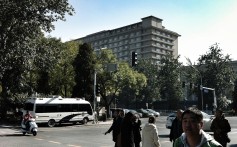Key Party meeting to forge China's future, but don't expect major political reforms
The third plenum will reveal the nation's direction under Xi Jinping, but will political reforms be part of the agenda?

As the Communist Party's Central Committee leaders gather in Beijing on Saturday for a closely-watched session, an expectant public - hungry for change - eagerly awaits proposals that might shake up the way the People's Republic governs itself.

But there have been signs that party politics may be on the table. In late October Yu Zhengsheng , the party's fourth-ranked leader, hailed the reform measures to be discussed as being "unprecedented". A subsequent Politburo meeting vowed to accelerate developments in five areas, including democratic politics, in a comprehensive and deepening way.
"The meeting will mainly focus on economic reforms. But the tone of comprehensive reform hints that the leadership is leaving some leeway for possible political reforms," says Cheng Li, director of research at the John Thornton China Centre at the Brookings Institution in Washington. But don't hold your breath awaiting momentous change: what Chinese leaders consider to be "political reform" is often very different from how it is defined in the West.
Political reform on the mainland is not about universal suffrage or balancing power among the administrative, legislative and judiciary branches, but about making the government more responsive, efficient - and powerful.
There is a yawning gap between what defines the word "reform" and what it means in practice. Ask a state think-tank scholar, an independent intellectual and an international researcher and you'll hear different answers.